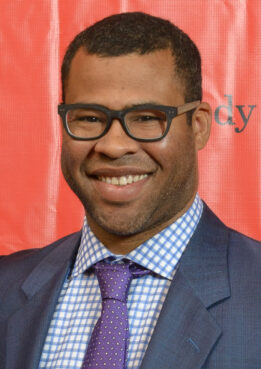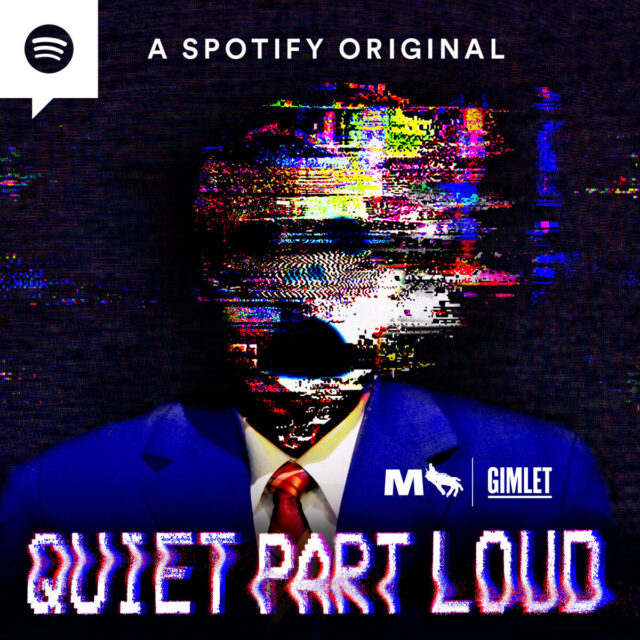(RNS) — Audio dramas — as old as the radio but long sidelined by television — have been slowly coming back over the past two decades, riding the podcast trend back to wider popularity. Currently, what are essentially fiction podcasts are incubators for cutting-edge sound design and storytelling, often in the horror genre.
One that’s worth mentioning is “Quiet Part Loud,” a compelling listen on Spotify about Rick Egan, far-right radio host, who was once at the top of his field. On air, he was racist and xenophobic, but he had a great number of followers whom he called “Crusaders” — think the wars of the Middle Ages between Christians and Muslims — and his voice carried a great deal of power.
“Quiet Part Loud” tells Egan’s story from the vantage of 2009, eight years after he has lost his show and his following in the months after 9/11, when he identified three Muslim boys from Staten Island as a terrorist sleeper cell waiting to strike New York City’s subway system. His reporting made Egan the target of an anthrax attack — though it came to light that Egan had mailed the anthrax to himself. The revelation destroyed his career.
When we meet Egan, played by Pulitzer Prize-winning playwright and actor Tracy Letts, he is still blackballed from radio, but a visit from a mysterious woman seems to offer him the chance to turn his life around: She gives him a tape recorder and tells him to investigate the disappearance of the three Muslim boys he’d targeted.
RELATED: ‘You put the baby in the manger?’: New podcast looks at sacred and profane in the Gospels
Egan soon encounters Khalil Hakim, one of the boys who disappeared — and hasn’t aged a day in the last eight years. With Khalil’s sister Noor and others, Egan is forced to chase down and confront an evil spirit.
In the following episodes, the drama details how fear becomes hatred, how it only takes one person in power spewing vitriol to bring about violence, and how evil feeds on the fear humankind creates.

Jordan Peele at the 2014 Peabody Awards. Photo by Charles Manley/Peabody Awards/Wikipedia
Fans of Jordan Peele, who wrote and directed the horror films “Nope” and “Get Out” and who is an executive producer of “Quiet Part Loud,” will see Peele’s sensibility at work here. Written by playwright Mac Rogers and author Clay McLeod Chapman, the show shares with Peele’s own work the presence of supernatural elements, announced by distorted sounds that make wonderful use of the audio medium.
But like Peele’s work, the fear created by “Quiet Part Loud” relies on the stark horrors of our world.
That includes a scene in the fourth episode, “The Boy,” in which Egan breaks into the Hakims’ home. The police are called, and when they arrive, they all but ignore the actual intruder and soon start making veiled threats to Noor and Khalil.
Bias against Muslims in America, by the police or more broadly, didn’t begin with 9/11 but increased in the aftermath. Noor tells Egan that she was 11 the first time a classmate ripped her hijab off. After 9/11, when she was 15, a white woman told her to go back to her own country. “I’d never been that close to someone who despised me so much,” she says.
Egan has had no small part in this violence. Throughout the series, he’s confronted by white supremacist supporters who affirm his ideology. One even tells him in the seventh episode, “Allies,” that they’d committed hate crimes at Egan’s direction.
That’s exactly what this evil spirit wants: It feeds on hate, particularly the racist kind. It’s selected Egan as its chosen one because he’s just that good at spreading hate.
Egan is meant to represent what many would view as the worst of society, something of an Alex Jones type.
RELATED: Anti-Muslim hate is driven by politics, not faith — and it’s preventable, study suggests
But because this is fiction, Egan is allowed some empathy. He has a strained relationship with his daughter Becca he’s fighting to repair, and he seeks out the answers to Khalil’s story to redeem himself from the wrongs of his past.
In the end, Egan does get the redemption he strives for, even if that redemption is somewhat similar to a biblical proverb: “The mouth of the righteous brings forth wisdom, but the perverse tongue will be cut off.”





